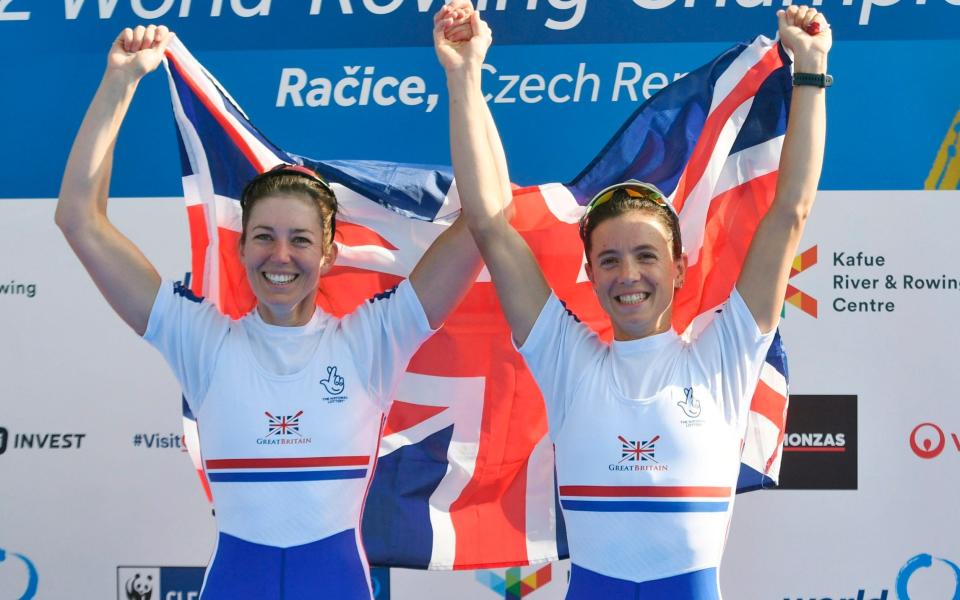How stealing Australia’s top coach and learning a new approach transformed British Rowing

By any standards the turn-around of Britain's Olympic rowing team this year has been phenomenal. The leap from the angst-ridden 2021 silver and bronze in Tokyo to four golds, a silver and three bronze medals across the same categories at this weekend's World Championships in the Czech Republic appears miraculous. What on earth has happened to bring about such drastic improvement?
The changes are few, but crucial, and the answer is that 12 months on from upheavals in the team there is now a knowledgeable, experienced and careful leadership which has created an environment in which the existing talent can flourish. The team was never disastrously underperforming but the flood of fourth to seventh places so prevalent during the 2017-2021 Olympiad are now being converted into medals, which will bolster British Rowing's claims on the national sporting coffers. Medals do matter, as they are the keys which unlock resources but to achieve them every piece of the jigsaw must fit.
The post-Rio decline
The grim period began six years ago, after the Rio Games at which GB Rowing rode the luck of having far fewer of the 2012 medallists retire than had been expected. Some went, but enough stayed on to strengthen what could have been an inexperienced team, putting Britain top of the medal table for the third time running. But that was followed by lots of departures, which partly explained the dismally poor 2017 Worlds result of five Olympic-class medals, none of which were gold.
A few months later the changes began with the resignation of long-serving performance director David Tanner. Apparently caught by surprise, British Rowing could not appoint a replacement straight away. Their new man, former canoeing and triathlon director Brendan Purcell, arrived mid-season after a confidence-sapping gap of three months. It wasn't long before women's head coach Paul Thompson left too, lured to China by Sir Steve Redgrave amid rumours of unsuccessful applications for Tanner's job. The obvious solution - putting perpetually successful coach Jurgen Grobler in charge of the women as well as the men - seemed to work at first with athletes embracing his tough training programme and producing personal bests. But it may have been a step too far for Grobler, who had grown accustomed to coaching individual crews rather than leading the whole squad.
Meanwhile under Purcell, who had clearly been hired in part to add a softer dimension to athlete management in place of Tanner's headmasterly approach, the team collectively seemed to lose direction. Poor Olympic-class results continued: two and three bronzes at the World Championships of 2018 and 2019 respectively. Granted, plenty of crews reached the medal finals and qualified for Tokyo, but most were unable to convert them to metalware. Nobody remembers who came fourth at the Olympics.

Whatever Purcell's management intentions, no doubt good, the impression given was that the gritty daily detail of running this type of sport eluded him. Unlike the small teams of canoeing and triathlon, the large rowing contingent turns out to need a sense of collective purpose, care and focus emanating from the top. The pandemic added further pressure, Grobler and British Rowing fell out during the summer of 2020, then a disastrous decision was taken somewhere to concentrate on the Paris 2024 plans, making Tokyo 2021 feel like an afterthought and disrupting the usual through-flow of talent.
Key appointments
Within a month of the Olympic regatta last summer, both Purcell and CEO Andy Parkinson, who had been in position since 2014, had resigned. The highly experienced former Para-rowing and development lead Louise Kingsley was appointed interim Performance Director and beat 11 applicants to be confirmed in the role last December. So far her approach has allowed others to shine. The talent has always been there in both the athletes and their coaches, constantly restocked from the vibrant and competitive rowing community found in every nation of the Union, and rowing does not attract slackers or those seeking shortcuts.
Stealing Andrew Randell from Rowing Australia in February to lead the Olympic women's coaching team was a strong move: already his crews are lauding the training programme which brought them three medals from five Olympic-class finals last week, including two golds. It's worth remembering that Kingsley encouraged many of the current team to start climbing the national ladder: there is continuity with the successful past. They like her blend of optimism and realism: last weekend's winners are already talking about working even harder to stay at the top.
Nobody is perfect and Kingsley will face challenges of her own. But under her leadership the jigsaw has fallen rapidly back into place, and she believes that people happy in their jobs do well. The atmosphere is business as usual, but Kingsley's softer style achieves what Purcell was trying to do without losing the in-depth rowing knowledge and attention to detail which marked Tanner's superbly successful reign. So far, so good.

 Yahoo Movies
Yahoo Movies 
